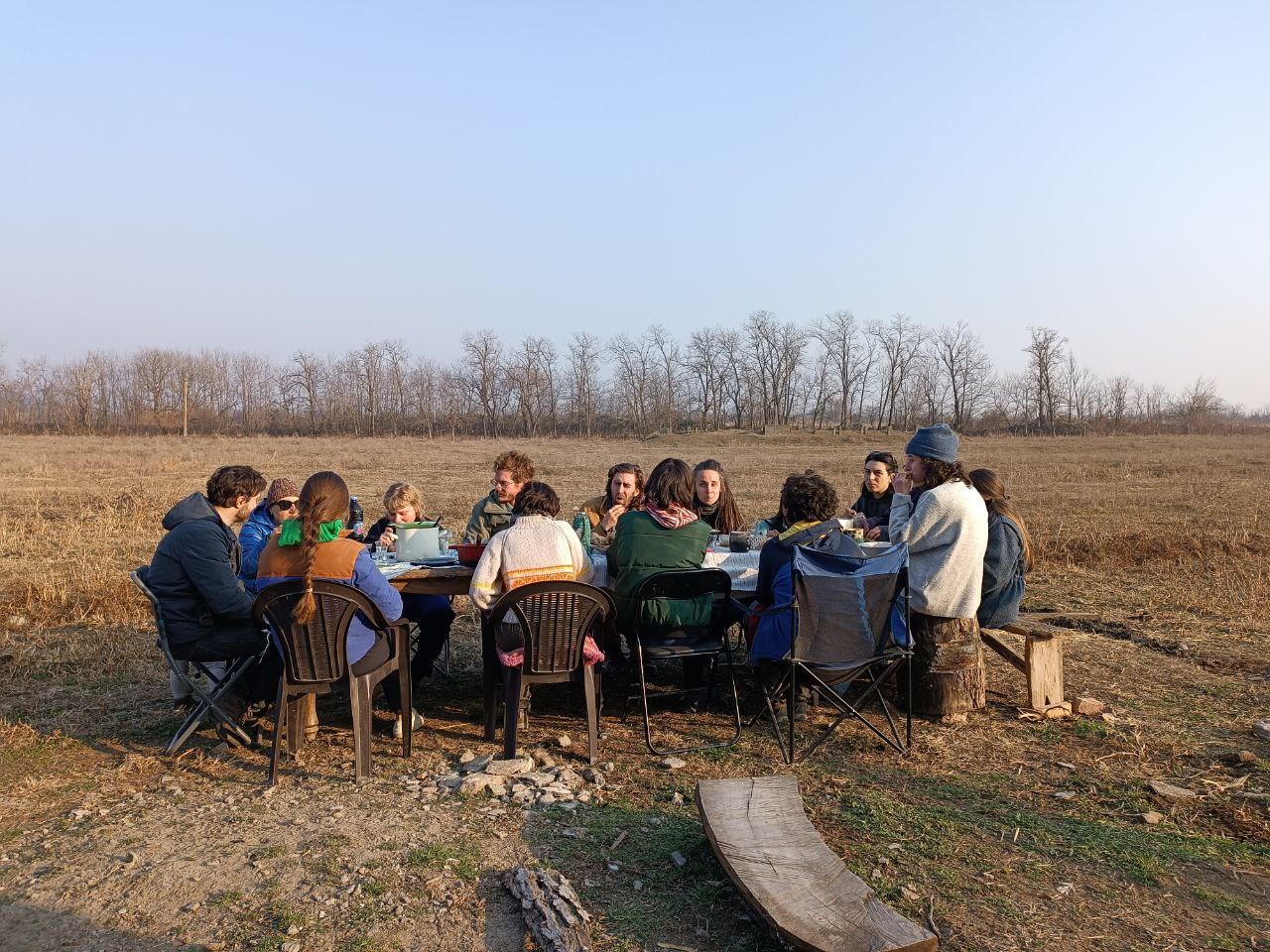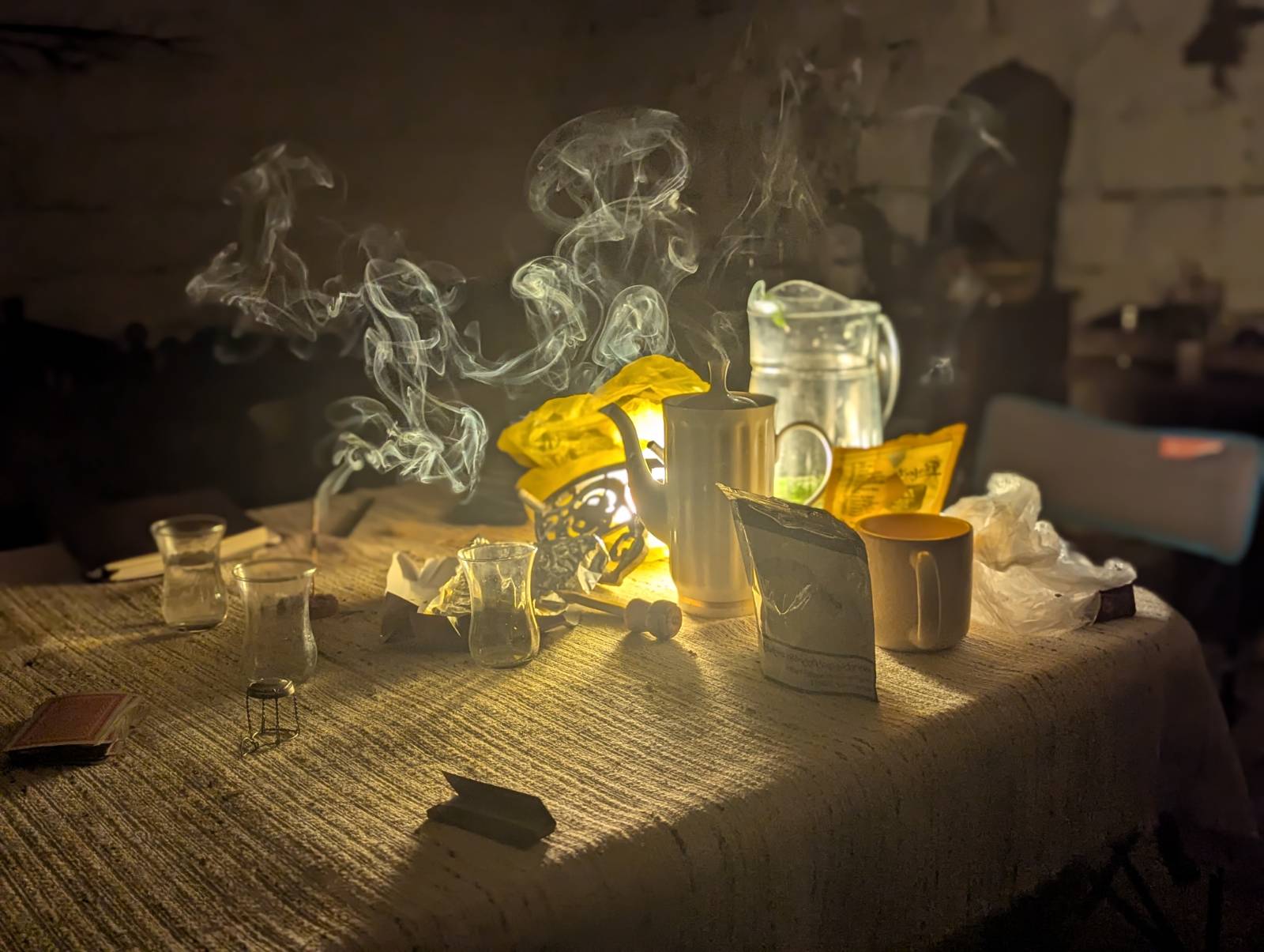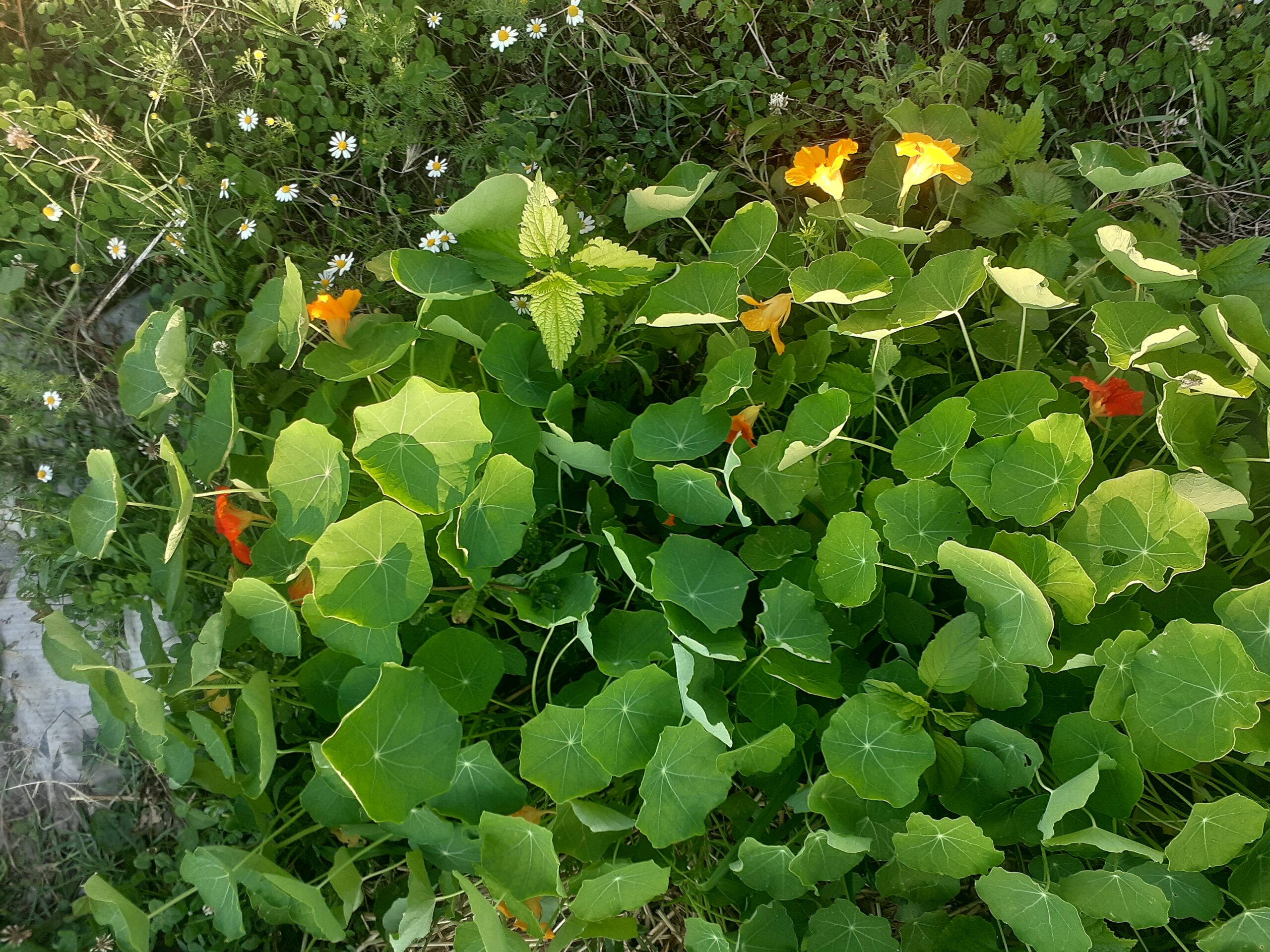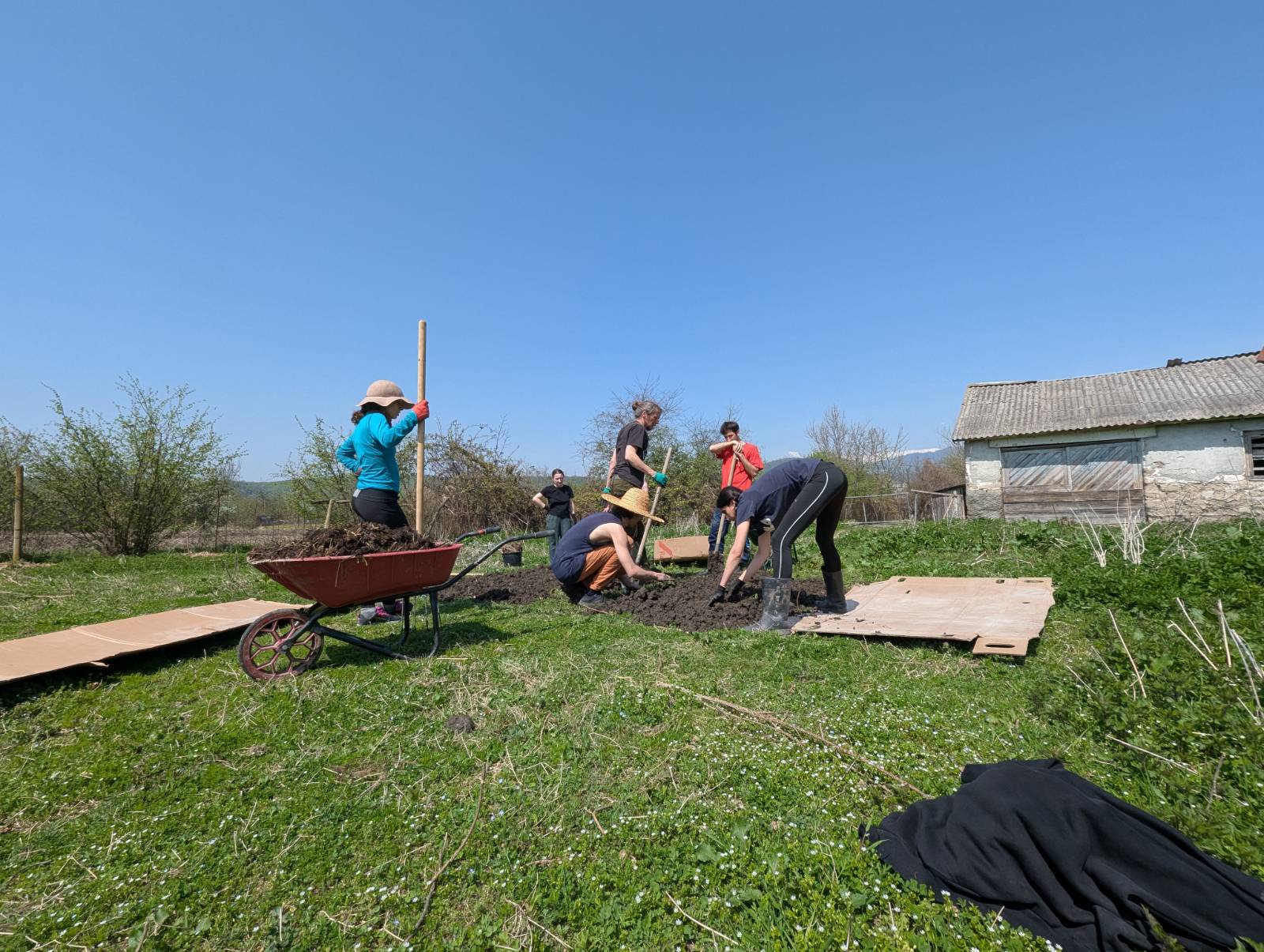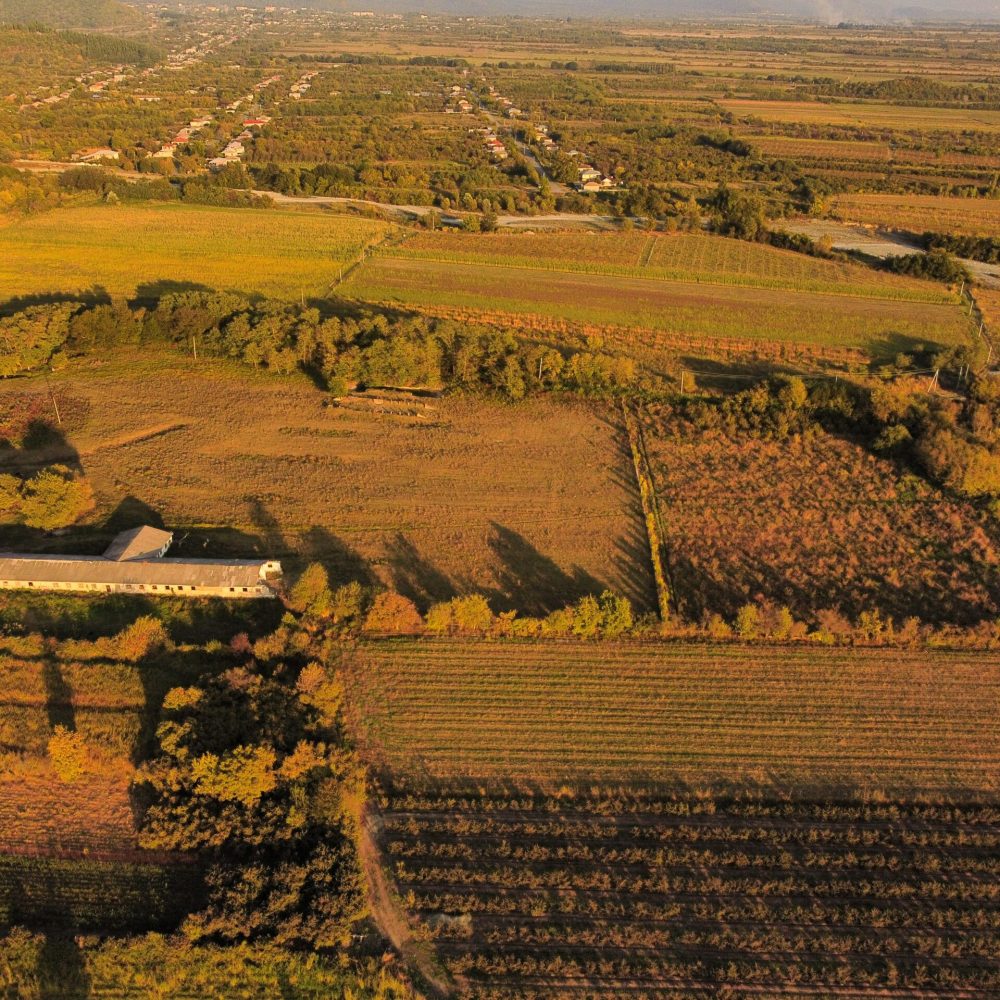
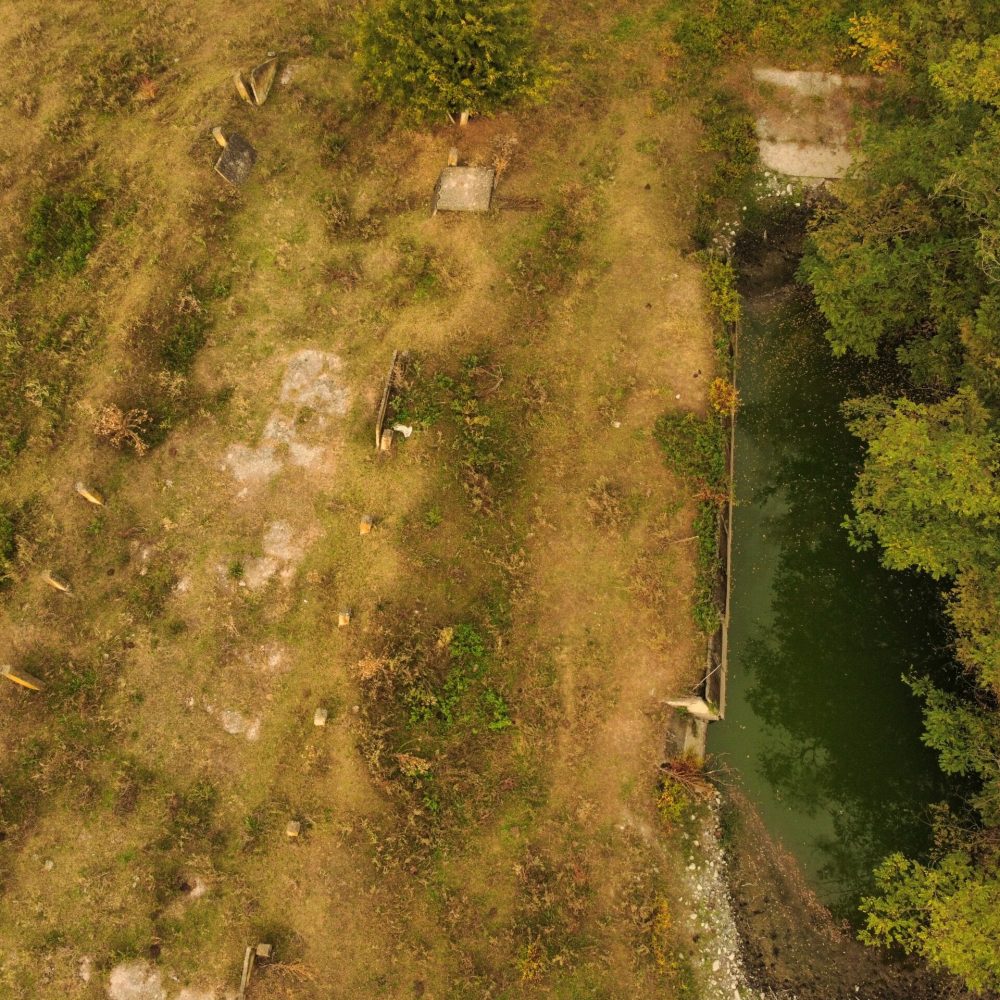
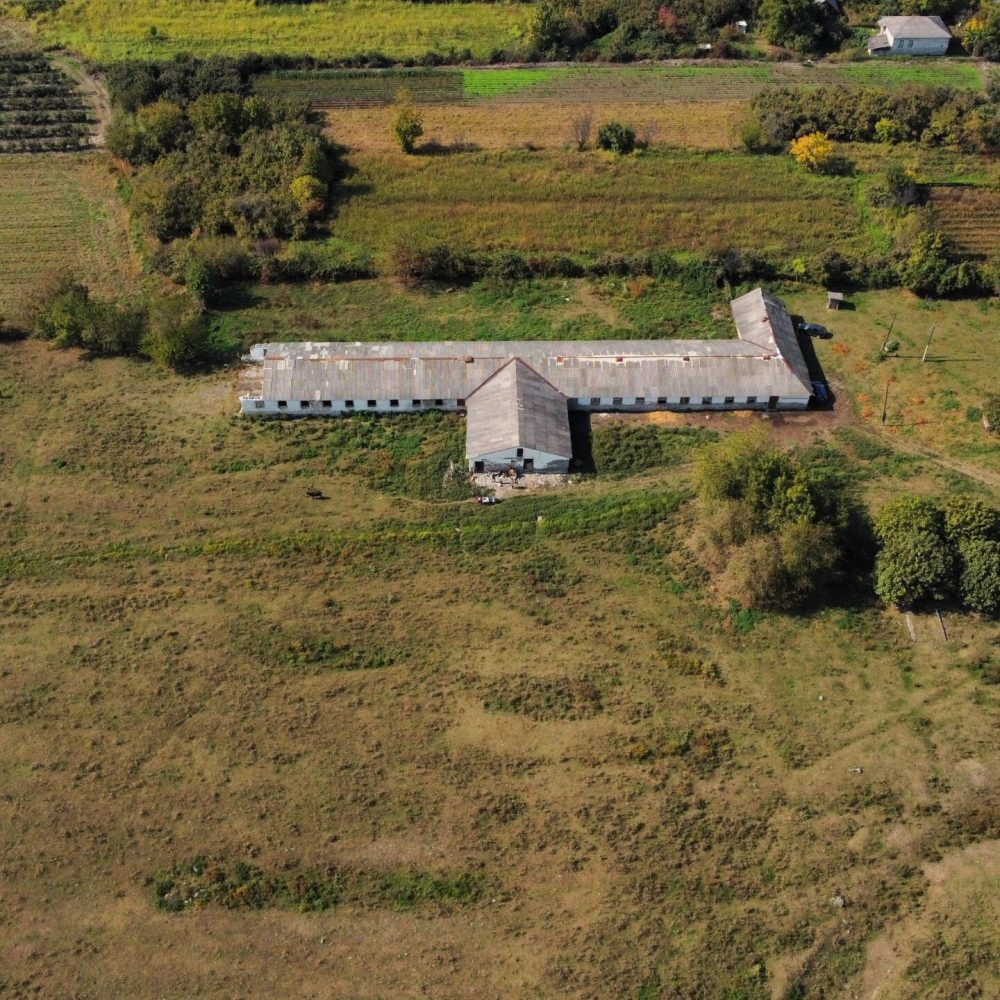
Ecovillage Georgia is an intentional community building a regenerative, ecological and socially just future in rural Georgia.
It was initiated by a group of Georgian and international people who share values of trust, cooperation and care, and a desire for a more sustainable, grounded way of life.
In 2023, we jointly purchased a beautiful 6.5-hectare plot of land in the Lagodekhi municipality of Kakheti, nestled at the foot of the Greater Caucasus mountains. The land offers space for housing, fresh water, fertile soil, trees and stunning views; everything needed to build the ecovillage we envision.
We are currently in the early stages of building the first ecovillage in the South Caucasus, and we warmly welcome more people to join us on this journey.
Pruning Weekend
Join us for a weekend of caring for our hazelnut trees! We’ll learn about pruning techniques and enjoy shared work and meals. Children are encouraged to play freely in nature, help with simple tasks, or join small craft activities.
- Who: Anyone is welcome including children.
- When: February. Dates will be announced shortly before and depending on weather here and via our social media and newsletter.
- Cost: Free / donation-based.
Summercamp 2026
We offer a unique two-week program rooted in community, discovery, and connection.
- What: A nature-based summer camp for children, offering both day and overnight options. The program will nurture creativity, ecological awareness, and joyful exploration through play and community living.
- Who: Children aged 4-12.
- When: Two terms, that run Monday – Friday: 6 – 10 July and 13 – 17 July 2026. It is possible to participate in both terms or for one week.
Frequently Asked Questions
General
An Ecovillage is a community where residents aim to minimize their impact on the environment. The goal is to achieve greater sustainability in social, cultural, economic, and ecological aspects of living.
Typically, an ecovillage includes shared spaces like gardens, work areas such as offices and workshops, alongside private ecological housing. Alternative water and energy management techniques are employed to supply residents with water and electricity. Additionally, the community often develops ecological businesses and eco-tourism initiatives to cover ongoing land maintenance costs.
We’re aiming for a community size of 10 to 30 households, ensuring everyone has plenty of space while enjoying a shared area embraced by the beauty of nature.
With the residential loan of $6000, you gain the right to utilize 300 sq.m. of land for your private use. The land is owned by the NPO, granting residents the right to utilize designated portions for building homes or businesses. Additionally, you will have free access to the remaining 6.5 hectares of land and all other communal facilities(community center, workshops, community garden, etc.)
While our communal spaces will remain alcohol and drug-free, we won’t impose restrictions on residents within their private spaces. We embrace diversity, accommodating vegans, vegetarians, and those who include meat in their diet, as well as individuals with varying preferences regarding alcohol consumption. Respect for each other’s choices and lifestyles is at the core of our community values.
While we aim for a degree of self-sufficiency, it’s not our primary focus. Our goal isn’t to live apart from society; instead, we aspire to be an integral part of it. We value modern achievements and aim to contribute meaningfully to society
There will be people living in the ecovillage full time, others part time. Everybody’s free to do whatever they want to do. Each resident is expected to contribute according to their abilities a couple of hours per week in communal tasks and regular meetings to be part of the community decision making processes.
Houses
You are responsible for your own living space. However, there are architects and natural builders in our group that will provide different options for ecological buildings, infrastructure and plans to be developed over time. We (our experts) will also develop guidelines for natural and environmentally friendly buildings. The community is responsible for infrastructure such as water, electricity and sewage to some extent. In the beginning, we are considering temporary houses in the form of containers, tents and vans. Also the existing buildings can be used as well for living.
The cost of a house depend on size and your ambitions. For a minimum of 5000$ you can build a small house if you do everything by yourself and use local/recycled materials. The house can be as expensive as you need it to be, as long as it fits with the general ideas of sustainability and taking into account general guidelines.
Houses should be made of natural materials as much as possible. Straw and Clay buildings are a good option as environmentally friendly, affordable and highly energy efficient buildings. The technology has proven its sustainability in the world and in Georgia. Other options such as Earth Ships, tiny houses and other recycled options can be considered. It is important that all buildings fit in esthetically with each other and in the landscape.
Financial
Our focus for now is developing essential infrastructure such as water, sanitation systems, gardens, communal areas with workspaces and social enterprises. Our financing strategy involves:
- new residents joining the project
- applying for existing foundations as ‘Produce in Georgia’, EU-funds like ENPARD and other available funds for rural development to realise our projects.
- Generating income from the community house and other social businesses operating in the Ecovillage.
These ways of generating income are a common practice in other ecovillages to finance infrastructure and projects, and to cover our own operational costs, communal services and taxes.
Your loan is fully refundable. In the ecovillage, we’ll actively assist in finding a buyer for your share and, if relevant, consider purchasing any real estate you’ve constructed on the land. As part of our agreement with residents, there will be an approximate 6 to 12 months period for the completion of the refunding process.
We’ll prioritize repaying loans based on the order of incoming residents—those who loaned first will be refunded first. Our aim is to completely settle all regular loans within a two-year period, allowing the land to be fully owned by the NPO. In the unlikely event of project failure, loans received before December 2023 are secured by the land’s value and can be repaid through the land’s sale.
Legal Part
The land is owned by a Nonprofit Organization (NPO) – REimagine 4
The land is owned by the NPO (REimagine 4). Each resident holds a refundable contribution (Residential Loan) within the NPO. This setup is legally permissible and offers both legal and financial security.
The residential section will be converted from its current agricultural status to a non-agricultural status.
Ecovillage Georgia can not help with residency.
You can check the link about getting settled in Georgia, types of visa, residency and citizenship:
https://migration.commission.ge/index.php?article_id=158&clang=1
Subscribe to our newsletter
Receive occasional updates on our latest advancements and the projects we’re bringing to life.
Interested in our project?
Whether you’re interested in becoming a resident in the village, volunteering, or if you have any questions, don’t hesitate to contact us. We’d love to hear from you.

